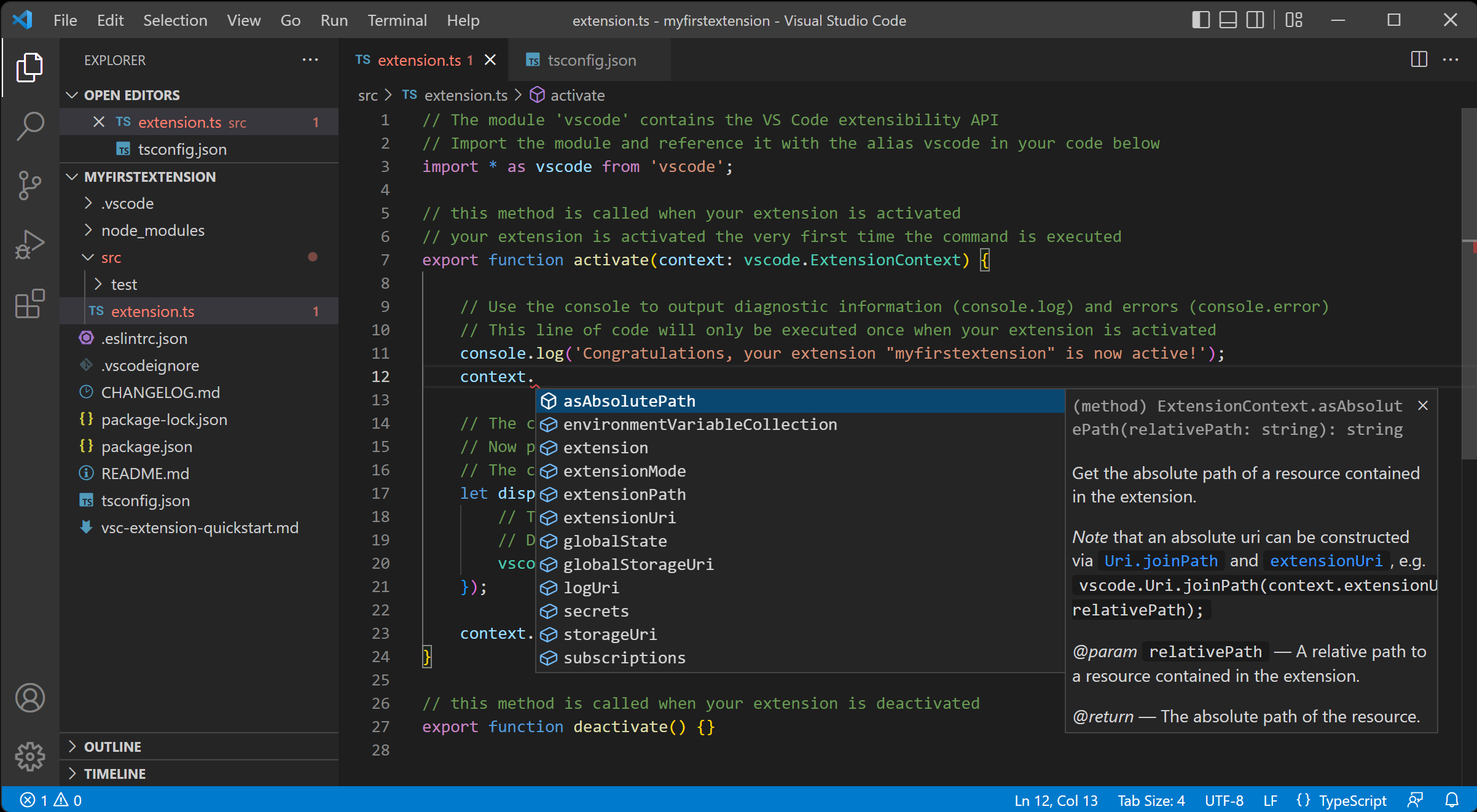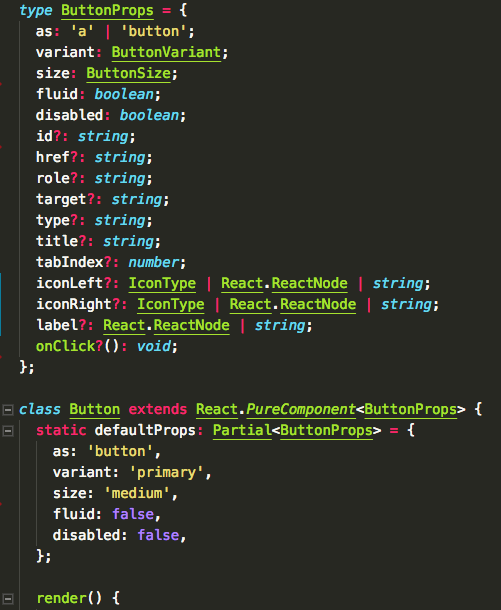Want to improve your coding skills in some way? Enter TypeScript — the robust superset of JavaScript that. TypeScript provides you with the static type checking, which helps to make your code more robust and minimizes some common programming errors and also provides other features like improved tooling support, easier to understand and concise code compared to JavaScript as Script is more expressive compared to JavaScript.
Advantages of Using Script
TypeScript has a lot of benefits which ensures why you should use Script as a developer. Optional static typing in the firs place helps to catch possible mistakes early in the development process, and prevents a lot of mistakes, which also makes the code quality better. This helps a lot as testing have to check up for common mistakes and less of them will pass on production runtime errors. TypeScript also has better tooling support (intelligent code completion, refactoring, navigation, etc.…
which makes it a great aid during development and especially if you work with others. The biggest advantage of using typescript is helping in maintaining the code base and collaborating better in larger projects. Strict types help with the overall grokability of the codebase, which helps in reducing bugs and accelerating debugging. When we can define and enforce those interfaces and types, we have a common language and we can create smoother, more productive collaboration.
At the last, Typescript is backward compatible with existing JavaScript codebases with easy migration. TypeScript allows you to gently introduce it to your project, you just have to start with few files or modules till it spreads throughout all your code usage. This agility goes a long way as it means that developers can leverage TypeScript without a change in their current workflow.

Key Features of TypeScript
TypeScript has a lot of excellent features which can improve the experience of a developer as well as the quality of code. Static typing is where one of the most distinctive features. Script — Script is better than JavaScript as by naming the types of variables, function parameters, and return types in TypeScrpit, errors can be caught at compile-time, lowering the probability of runtime failures. The feature, in turn, increases code reliability, and an overall robustness of the application.
Compiler Features Type checking Module auto-loading 3.6 Lower bound yowestogel type inference 3.6 Import assertions 3.5 The `omit`(3.5) utility type 3.5 What about latest ECMAScript Features 3.5 What about async iterators and generators and more 3.6 ACK for nullish coalescing & optional chaining 3.9 Ack on underscore numeric separators to see what’s coming down Higher order type inference 3.4 `.`
Notation as a shorthand 3.8 Non-nullable types upfront intializers Concurrency Support >Native Node and Browser Support escalating TypeScript […] TypeScript is a superset of ECMAScript, making it compatible with the latest version of JavaScript and be compiled down to previous version, allowing for greater browser compatibility. This also allows you to use features such as arrow functions, template literals and destructuring assignments that are not yet supported by all browsers.
It also adds classes and interfaces for creating object-oriented code. You can create classes with properties and methods, interface to enforce contracts, and inheritance/polymorphism to avoid repeating code and keep everything organized. ES6 makes it easy to write clean and less error-prone code for building better and complex apps using a structured TypeScript language.
Setting up a Script Development Environment
To plunge into the waters of Script development, one must first construct the pillars of a well-equipped environment. The foundational step is installing Node.js, granting access to the omnipotent npm package manager. With npm’s might, we can then summon TypeScript itself onto our machines from afar with world-bending incantations. Next comes the forging of a Script project’s dna with the tsc command’s exothermic reaction, crystallizing options within a newly born tsconfig.json.
Our workspace also demands the perfect tool for the job. As the de facto editor of choice, Visual Studio Code answers the call with its inherent understanding of TypeScript. IntelliSense and automatic verification weave their constant assurance, while debugging stands at the ready should bugs dare appear. With Visual Studio Code and TypeScript allied as one, programmers can feel empowered to forge ahead without fear of uncertainty or error. The synchronous synergy of this duo shall supercharge any development endeavor toward optimal efficiency and maintainable results.

Basic Syntax and Data Types in Script
TypeScript shares much of its syntax with JavaScript, making it easy for JavaScript developers to get started. However, Script introduces some additional syntax and data types to enable static typing. Let’s explore some of the basic syntax and data types in TypeScript.
Variables and Constants
In TypeScript, you can declare variables using the let keyword and constants using the const keyword. Variables and constants can be explicitly typed using the colon (:) followed by the desired type. Script supports various data types, including number, string, boolean, array, tuple, enum, and any.
typescript let age: number = 25; const name: string = "John Doe"; let isApproved: boolean = true; let numbers: number[] = [1, 2, 3, 4, 5]; let person: [string, number] = ["John Doe", 25]; enum Color { Red, Green, Blue }; let favoriteColor: Color = Color.Blue; let data: any = "Hello World";
Functions
Functions in Script can have optional and default parameters, return types, and can be assigned to variables. You can explicitly specify the parameter types and return type using the colon (:) followed by the type.
“`Script function addNumbers(x: number, y: number): number { return x + y; }
let multiplyNumbers = function(x: number, y: number): number { return x * y; }
let divideNumbers: (x: number, y: number) => number = function(x, y) { return x / y; } “`
Classes
Classes in Script provide a way to create objects with properties and methods. You can define a class using the class keyword, and use the constructor method to initialize the object’s properties. You can also define methods within the class to perform various actions.
“`Script class Person { name: string; age: number;
constructor(name: string, age: number) { this.name = name; this.age = age; }
sayHello() { console.log(Hello, my name is ${this.name} and I am ${this.age} years old.); } }
let person = new Person(“John Doe”, 25); person.sayHello(); “`
Type Annotations and Type Inference in TypeScript
TypeScript offers two ways to specify types: type annotations and type inference. Type annotations involve explicitly declaring the types of variables, function parameters, and return values. On the other hand, type inference allows Script to automatically deduce the types based on the context and initial values.
Type annotations can be useful when you want to be explicit about the types or when Script cannot infer the types correctly. It provides better clarity and helps catch potential errors early on. However, TypeScript’s powerful type inference system often eliminates the need for explicit type annotations, reducing the verbosity of the code.
TypeScript and JavaScript Interoperability
One of the significant advantages of Script is its seamless interoperability with JavaScript. Script is a superset of JavaScript, meaning any valid JavaScript code is also valid TypeScript code. This makes it easy to integrate Script into existing JavaScript projects or libraries.
You can gradually introduce Script into your JavaScript codebase by renaming the existing .js files to .ts files and enabling the TypeScript compiler to check the code for type errors. TypeScript supports type declaration files (.d.ts), which allow you to describe the type information of existing JavaScript libraries or frameworks. This enables you to leverage the full power of TypeScript in combination with popular JavaScript libraries like React, Angular, and Vue.js.

Popular Libraries and Frameworks that Support Script
TypeScript has gained immense popularity in the developer community, and many libraries and frameworks have embraced Script as their preferred language. Some of the most popular libraries and frameworks that provide excellent Script support include:
- React: The widely used UI library for building user interfaces in web applications.
- Angular: The powerful and feature-rich framework for building large-scale applications.
- Vue.js: The progressive JavaScript framework for building user interfaces.
- Express.js: The popular web application framework for Node.js.
- NestJS: The modern, progressive framework for building efficient and scalable server-side applications.
- TypeORM: The Object-Relational Mapping (ORM) library for TypeScript and JavaScript.
These libraries and frameworks offer TypeScript-specific features, type definitions, and enhanced tooling support, making it easier to develop robust and scalable applications.
Conclusion and Next Steps in Learning TypeScript
In conclusion, TypeScript is a game-changer for developers who want to write cleaner, safer, and more scalable code. With its optional static typing, rich set of features, and seamless interoperability with JavaScript, Script provides a powerful toolset for building modern applications. By enforcing strict types and leveraging the latest ECMAScript features, Script helps catch errors early, enhances code quality, and boosts developer productivity.
To level up your TypeScript skills, it’s recommended to practice by working on small projects or contributing to open-source Script projects. Additionally, exploring the official Script documentation, watching video tutorials, and joining developer communities can provide valuable insights and help you stay up to date with the latest developments in the Script ecosystem. If you like reading this article then please consider reding our article about Chopard 201.

